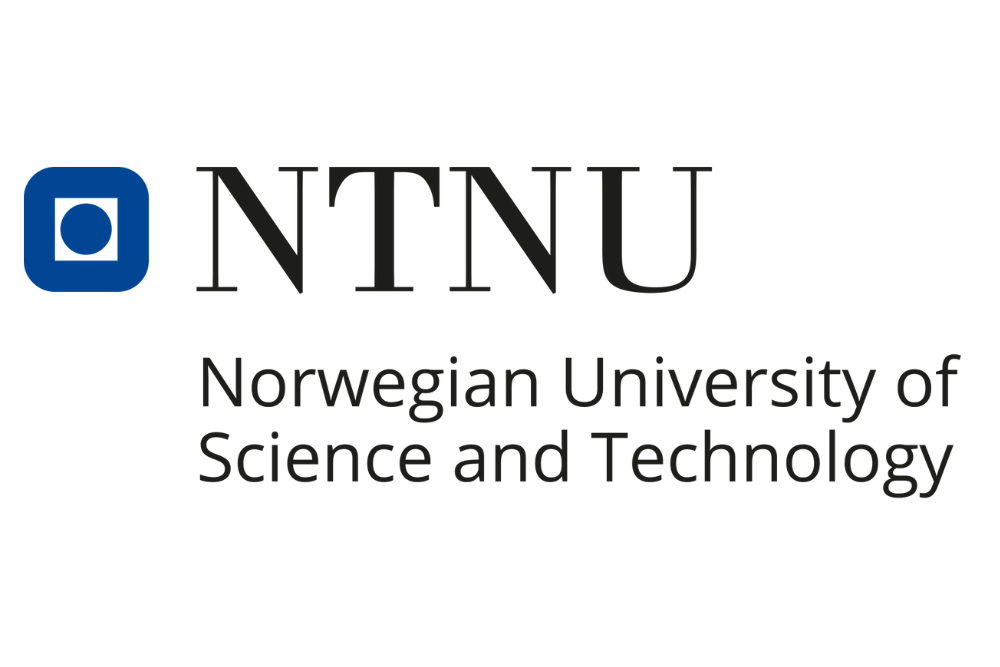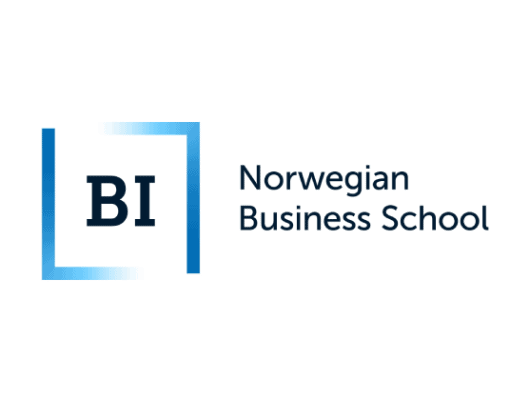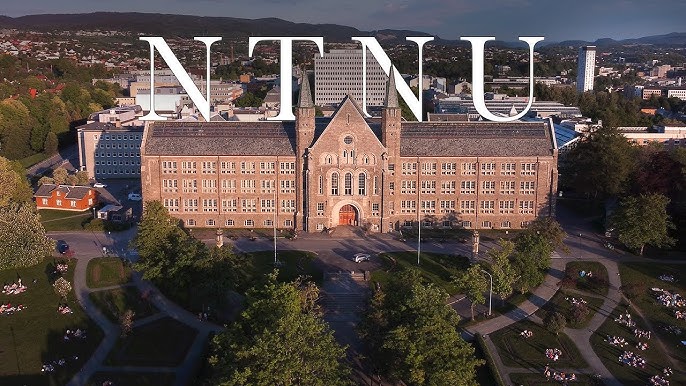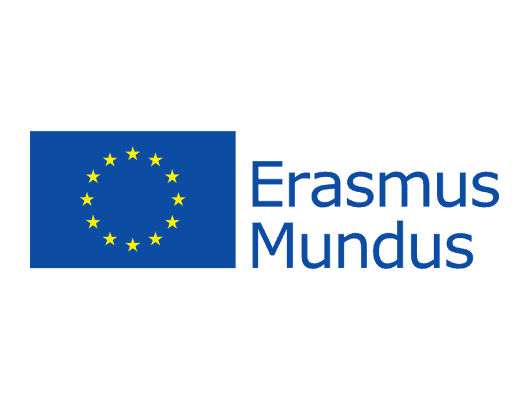Norway is becoming an increasingly popular study destination for international students, thanks to its world-class universities, high-quality education system, and tuition-free opportunities at many public institutions. Known for its stunning natural beauty, safe environment, and strong emphasis on research and innovation, Norway offers an ideal setting for both academic and personal growth. The best part? Numerous fully funded and partial scholarships are available for international students, making it possible to study in Norway without the heavy financial burden.
Whether you’re aiming for a bachelor’s, master’s, or PhD program, Norwegian universities and government initiatives provide generous funding that can cover tuition, living expenses, travel, and more. In this guide, we’ve compiled a comprehensive list of the top scholarships in Norway for international students for 2026–2027, along with essential details to help you choose the right opportunity and prepare a strong application. Studying in Norway could be your gateway to a global career and an unforgettable cultural experience.
Top Scholarships in Norway for international Students 2026 - 2027
- BI Presidential Scholarship 2027 BI Norwegian Business School, Norway - Start your study adventure in Norway
- NTNU Scholarships – Norwegian University of Science and Technology - NTNU – Shaping Future Innovators from Pakistan to the World
- PhD Positions at Norwegian Universities 2027 Fully Funded - Start your research career in Norway
- Erasmus+ Joint Master Degrees (Erasmus Mundus) Scholarships 2027 - Start your master’s adventure in Europe
![BI Presidential Scholarship [NEXTYEAR] BI Norwegian Business School, Norway BI Presidential Scholarship [NEXTYEAR] BI Norwegian Business School, Norway](https://www.scholarshipsghana.com/storage/media/1ac163cd-6172-4a2d-acca-cc0ea9190d37.webp)
BI Norwegian Business School offers a fully funded scholarship for top-performing international students to pursue a Master’s degree in business fields.

Norwegian University of Science and Technology offers tuition support and international research exposure to international students in top engineering and science programs.
![PhD Positions at Norwegian Universities [NEXTYEAR] Fully Funded PhD Positions at Norwegian Universities [NEXTYEAR] Fully Funded](https://www.scholarshipsghana.com/storage/media/9b14b512-6f49-400e-8ffe-42818f87f759.png)
PhD positions at Norwegian universities 2026-2027 are fully funded fellowships where candidates are hired as university employees. Offering salaries, benefits, and tuition-free education, these doctoral opportunities at top institutions like UiO, NTNU, UiB, and UiT attract researchers worldwide.
![Erasmus+ Joint Master Degrees (Erasmus Mundus) Scholarships [NEXTYEAR] Erasmus+ Joint Master Degrees (Erasmus Mundus) Scholarships [NEXTYEAR]](https://www.scholarshipsghana.com/storage/media/24c15a67-ea94-495b-8696-817232275963.webp)
Erasmus+ Joint Master Degrees 2026-2027 in Norway offer fully funded opportunities to study at top universities like the University of Oslo, NTNU, UiB, and UiT. Covering tuition, stipend, travel, and housing, these EU-backed scholarships provide world-class education across Europe.
Exploring the Best Scholarship Opportunities in Norway for international Students
The journey to studying in Norway becomes significantly easier when you know exactly which scholarships offer the best opportunities. From prestigious business school awards to government-funded programs and global research grants, international students can access a wide range of fully funded and partially funded scholarships designed to cover tuition, living expenses, and more. Each program has its own focus — some reward academic excellence, others promote international research collaboration, and some are aimed at building strong ties between Norway and developing countries like Pakistan.
In the Top 10 Scholarships in Norway for international Students (2025), you’ll find opportunities tailored to different fields of study, career aspirations, and academic levels. For instance, the BI Presidential Scholarship at BI Norwegian Business School is ideal for high-achieving students in business and management, while the University of Oslo Scholarships open doors to one of Norway’s most prestigious institutions. The NTNU Scholarships focus on innovation and technology, making them perfect for future engineers and scientists, while the Norwegian Partnership Programme for Global Academic Cooperation promotes exchange and collaborative projects between Norway and Pakistan.
Research-driven students will find the Research Council of Norway (RCN) Scholarships to be a gateway to impactful global projects, and the Erasmus+ Joint Master Degrees (EMJMDs) with Norway provide the rare chance to study across multiple European countries with full funding. For those drawn to unique academic environments, the University of Bergen Scholarships and UiT The Arctic University of Norway Scholarships offer access to specialized fields like marine research and Arctic studies. Additionally, the HEC-Norway Joint Programs provide occasional but valuable opportunities specifically for international students, backed by the Higher Education Commission of Pakistan.
In the following sections, we will explore each of these scholarships in detail — covering their benefits, eligibility requirements, and how you can apply successfully. This way, you’ll be equipped with all the information you need to choose the scholarship that aligns best with your academic goals and career plans.


The BI Presidential Scholarship is one of the most prestigious awards offered by BI Norwegian Business School. It is open to both Norwegian and international applicants who demonstrate outstanding academic records. The scholarship is available for students enrolling in a Master of Science (MSc) program at BI.
International students benefit the most, as the scholarship not only covers full tuition fees but also provides a living stipend to help with expenses while studying in Norway.
Scholarship Summary
Level of Study: Master’s (MSc programs)
Institution: BI Norwegian Business School (BI NBS), Oslo, Norway
Study in: Norway
Scholarship Value: Full tuition + stipend (for international students)
Deadline: 1 March 2026 (for Autumn 2026 intake)


The Norwegian University of Science and Technology (NTNU) is one of the top-ranked technical institutions in Europe, known for its excellence in engineering, natural sciences, IT, and innovation. international students aiming for careers in science, technology, and research-driven fields will find NTNU an ideal academic destination. The university offers various tuition-free Master's programs in English and extends scholarship opportunities through international mobility programs like NORPART, Erasmus+, and departmental research funds.
international students applying to NTNU’s international Master’s programs between December and March can become eligible for full or partial tuition support. While tuition itself is often free in public Norwegian universities, some NTNU scholarships also include support for living costs, especially through partnerships or externally funded grants. This makes it a cost-effective and prestigious option for students who have a strong academic background and motivation for research or technical leadership.
The selection is highly competitive, especially for programs offering financial support. However, international students with a solid academic record, a strong statement of purpose, and relevant experience have a good chance of being considered. NTNU is also part of many international research collaborations, increasing students' exposure to global opportunities. Students from Pakistan can benefit not only from the quality education but also from the cultural diversity and safe environment of Norway.
For those seeking to study abroad without the burden of heavy tuition, NTNU's scholarships and partnerships offer a structured and credible pathway. The degrees earned are internationally recognized, and Norway’s progressive immigration laws allow post-study work rights, enhancing the long-term value of the education. international students should keep track of NTNU’s official deadlines and begin preparations early to secure admission and possible financial aid.
Pros
Strong reputation in engineering, science, and tech fields
Tuition-free education with potential external living cost support
Excellent international mobility and research collaboration opportunities
Cons
Living expenses in Norway are high if not covered
Limited scholarships for non-technical or humanities programs
Financial aid is limited and highly competitive


PhD positions at Norwegian universities for 2026-2027 are now open. Unlike traditional scholarships, these PhD positions are offered as fully funded employment contracts, meaning that doctoral candidates are officially hired as university employees. This unique model ensures that PhD fellows receive a monthly salary, pension rights, health insurance, paid holidays, and other social benefits, making it one of the most attractive doctoral study options in the world. With no tuition fees at Norwegian universities, international students can pursue research in a wide range of fields while enjoying a high standard of living and access to world-class research facilities.
Scholarship Summary
Level of Study: PhD (Doctoral Studies)
Institutions: Norwegian public universities (e.g., University of Oslo, NTNU, University of Bergen, UiT)
Study in: Norway
Funding Type: Fully funded (employment contracts)
Duration: 3–4 years
Salary: Approx. NOK 501,200 – 544,400 per year (~€45,000–50,000)


The Erasmus Mundus Joint Master Degrees (EMJMD), now officially known as Erasmus Mundus Joint Masters (EMJM), are fully funded scholarships funded by the European Union (EU). They allow international students to study in at least two different European countries (sometimes including non-European partner universities) under one integrated master’s program.
Scholarship Summary
Level of Study: Master’s (Joint Degrees)
Institutions: A consortium of European universities (2–4+ institutions per program)
Study in: Europe (plus partner universities worldwide in some programs)
Duration: 1–2 years
Scholarship Type: Fully Funded by the European Union
Deadline: Varies by program (generally October–January for Autumn 2026 intake)
Why international Students Should Consider Norway for Higher Education
Norway is consistently ranked among the top countries in the world for quality of life, safety, and educational excellence. For international students, studying in Norway offers a unique combination of academic quality, affordability, and cultural enrichment. Many public universities in Norway offer tuition-free education even for international students, and scholarship programs help cover living costs in cities like Oslo, Bergen, and Trondheim.
One of the biggest advantages for international students is the English-taught programs available at both undergraduate and postgraduate levels, eliminating the need to learn Norwegian before starting your degree. From engineering and natural sciences to business, social sciences, and arts, Norwegian universities offer a wide range of courses that are globally recognized.
Benefits of Studying in Norway with a Scholarship
Reduced or zero tuition fees at public universities
Living stipends to cover accommodation, food, and daily expenses
Travel allowances for international students
Access to world-class research facilities and laboratories
Networking opportunities with international professionals and researchers
Scholarships are offered by the Norwegian government, individual universities, and international exchange programs. These awards are usually merit-based, need-based, or research-oriented, and they often give priority to students from developing countries, including Pakistan.
Top Universities in Norway Offering Scholarships to international Students
Norway is home to several highly ranked universities that not only welcome international students but also offer generous scholarships to help cover the cost of living. For international students, these institutions provide a unique chance to access world-class education while experiencing life in one of the most peaceful and innovative countries in the world.
1. University of Oslo (UiO) – As Norway’s oldest and most prestigious university, UiO offers a variety of English-taught programs at the master’s and PhD levels. The university participates in several international scholarship schemes, including government-funded programs that cover living expenses for outstanding students.
2. Norwegian University of Science and Technology (NTNU) – Known for its excellence in engineering, technology, and natural sciences, NTNU offers international master’s programs with potential funding through the Norwegian government and research grants.
3. University of Bergen (UiB) – Specializing in research, particularly in marine sciences, climate research, and global health, UiB provides scholarships in collaboration with Norwegian funding bodies and international organizations.
4. UiT The Arctic University of Norway – Located in Tromsø, UiT focuses on Arctic studies, environmental sciences, and indigenous research. It offers scholarship opportunities through various government and research initiatives, making it an excellent choice for niche academic fields.
5. NHH Norwegian School of Economics – One of Europe’s leading business schools, NHH offers highly competitive scholarships for its master’s programs in economics and business administration, attracting talented students from around the world.
6. BI Norwegian Business School – A private business school offering merit-based scholarships to outstanding international students in business, management, and finance programs.
7. Inland Norway University of Applied Sciences (INN University) – Known for applied research and practical-oriented programs, INN University offers scholarships for selected master’s degrees in collaboration with partner organizations.
Life in Norway as a international Scholarship Student
Living in Norway offers a safe, student-friendly environment, but it’s important to budget for higher living costs. Many scholarships include monthly stipends to help cover accommodation, food, and transport. Cities like Oslo, Bergen, Trondheim, and Tromsø offer excellent public transport, vibrant student communities, and cultural activities.
international students often find support through international student associations, cultural exchange programs, and the international community in major cities. Whether exploring the Northern Lights, joining a university research project, or networking with peers from around the world, your time in Norway will be academically and personally enriching.
How to Get a Study Visa for Norway from Pakistan
international students who are accepted into a Norwegian university must apply for a Norwegian Study Visa, officially known as a Residence Permit for Studies. This visa allows you to live and study in Norway for the duration of your program and is mandatory before traveling.
1. Get Accepted into a Norwegian University
Apply to your chosen bachelor’s, master’s, or PhD program in Norway.
Ensure you receive an official admission letter from the university — this is required for your visa application.
2. Prepare Required Documents
You’ll need to gather and prepare the following:
Valid passport (must be valid for the duration of your stay)
Letter of Admission from a Norwegian university
Proof of sufficient funds (bank statement or scholarship letter showing at least NOK 137,907 for one year — amount may change annually)
Proof of accommodation in Norway (university housing confirmation or rental agreement)
Passport-size photos
Completed visa application form (available on the UDI website)
Proof of paid tuition fee (if applicable)
Health insurance valid in Norway
3. Apply Online at UDI (Norwegian Directorate of Immigration)
Create an account and fill in your application on the official UDI website: https://www.udi.no
Pay the visa application fee online.
4. Book an Appointment at VFS Global in Pakistan
In Pakistan, Norway visa applications are handled through VFS Global on behalf of the Royal Norwegian Embassy in Abu Dhabi.
Schedule your appointment at one of the VFS Global centers in Islamabad, Lahore, or Karachi.
5. Attend Your Visa Appointment
Submit your documents, biometrics (fingerprints and photograph), and printed application receipt.
Make sure all documents are original or attested copies.
6. Wait for Processing
Visa processing can take up to 8 weeks, so apply early.
You may be asked for additional documents during the process.
7. Receive Your Decision and Travel to Norway
Once approved, you’ll receive a visa sticker in your passport.
Upon arrival in Norway, you must register with the local police within 7 days to receive your residence card.
Important Tips for international Students Applying for a Norway Study Visa:
Always apply at least 3–4 months before your program starts.
Ensure your bank statements are clear and meet the UDI’s requirements for proof of funds.
If you’re on a scholarship, include the official award letter to avoid issues with financial proof.
Keep copies of all documents for your records.
How Students Can Find Jobs in Norway
Working part-time in Norway is a popular option for international students who want to earn extra income, gain experience, and build professional connections. Students with a residence permit for studies are allowed to work up to 20 hours per week during the academic semester and full-time during holidays. This work right is included in the student residence permit, so no separate permit is required for these hours. However, if you work in Norway, you must apply for a tax deduction card (skattekort) and get a Norwegian ID number.
Part-time jobs for students in Norway are available in various sectors. Common options include hospitality and retail work in cafés, restaurants, hotels, and shops; university-based jobs such as research or teaching assistant roles; delivery and logistics work like food delivery or warehouse tasks; seasonal jobs in tourism, event staffing, and farm work; and in some cases, freelance opportunities such as graphic design, writing, or tutoring if they comply with your visa conditions. While many entry-level jobs do not require advanced Norwegian skills, even basic knowledge of the language can significantly increase your chances of finding employment.
There are several ways to find part-time jobs in Norway. Most universities, such as the University of Oslo and the Norwegian University of Science and Technology (NTNU), have career centers that regularly post on-campus and off-campus student job opportunities. Online job portals are another excellent resource. Some of the most popular include Norway’s official labor and welfare service NAV, the largest job listing platform in Norway Finn.no, international listings via Indeed Norway, and a broad search portal Jobbsafari covering multiple sectors including student roles.
Networking is also important in Norway’s job market. Joining international student associations in your city, attending career fairs, participating in university networking events, and getting involved in local community activities such as language exchange groups or volunteering can help you meet potential employers. In smaller businesses, it’s common to hand in your CV directly in person, especially for café, restaurant, and shop positions.
When looking for a job, learn some basic Norwegian to make yourself more competitive. Prepare a short and clear Norwegian-style CV tailored to the job you are applying for, and apply early because competition for student jobs in major cities like Oslo and Bergen can be high. Be flexible and willing to start in entry-level roles to gain local experience, and consider volunteer work as a way to make contacts and secure references. On average, student part-time jobs in Norway pay between NOK 160–200 per hour (approximately PKR 4,200–5,200), depending on the job type and location.
Post-Study Work and Settlement in Norway
After completing their degree, international students in Norway have several options to remain in the country for work and long-term settlement. One of the most common routes is applying for a Norwegian Job Seeker Visa, which allows graduates to stay in Norway for up to 12 months while they look for employment related to their field of study. To be eligible, you must have completed your degree in Norway, prove that you have sufficient funds to support yourself during your stay, and actively apply for jobs in your field.
Once you secure a job offer that meets Norway’s work permit criteria, you can apply for a Skilled Worker Residence Permit. This type of permit is typically granted for one to three years, depending on your employment contract, and can be renewed as long as you remain employed in a qualifying role. Skilled worker permits are often the main pathway toward permanent residency for international graduates, including those from Pakistan.
Norway also has a clear route to permanent residency (PR). If you have lived in Norway continuously for at least three years on a valid residence permit and meet certain language and social studies requirements, you may be eligible to apply for PR. Permanent residency allows you to live and work in Norway indefinitely without the need to renew your permit. After holding PR for a certain period, you can apply for Norwegian citizenship if you meet the country’s integration and residency requirements.
Graduates with in-demand skills, especially in sectors like engineering, IT, renewable energy, health sciences, and maritime industries, often find good opportunities in Norway’s job market. Building professional networks during your studies, applying for internships, and engaging in part-time work while studying can improve your chances of securing employment after graduation. The official Norwegian Directorate of Immigration (UDI) website https://www.udi.noprovides updated guidelines and application forms for post-study work and settlement permits.
For international students, careful planning during the final year of study is crucial to ensure a smooth transition from student status to a work permit holder. Applying early, keeping your documents updated, and maintaining legal residence throughout your studies will help you take full advantage of Norway’s post-study opportunities and set you on the path to a long-term career and life in the country.
With tuition-free education, growing English-taught programs, and strong global rankings, Norway is an incredible study destination for international students. While the cost of living can be high, the availability of generous scholarships, exchange programs, and research funding makes it possible to afford a world-class education in a safe, sustainable, and high-quality environment.
If you’re a motivated student with a strong academic background, Norway can offer you a life-changing opportunity to study in Europe — without massive tuition debt.

